Exercise Meditation

Can yoga or meditation combined with exercise enhance emotion regulation ?
Emotion regulation is a crucial aspect of mental health, and it refers to the ability to manage and control one's emotional responses. There are various ways to enhance emotion regulation, and one of them is through physical activities such as yoga, meditation, and exercise. In this article, we will discuss how these practices can help improve emotion regulation. Yoga is a mind-body practice that combines physical postures, breathing techniques, and meditation. It has been shown to have numerous benefits for mental health, including enhancing emotion regulation. Yoga helps to reduce stress and anxiety, increases self-awareness, and promotes mindfulness. Meditation is another practice that involves focusing the mind on a particular object, thought, or activity to achieve a mentally clear and emotionally calm state. Like yoga, meditation has been shown to have numerous benefits for mental health, including enhancing emotion regulation. Meditation improves attention and focus, reduces emotional reactivity, and increases self-awareness. Exercise is another effective way to enhance emotion regulation. It reduces stress and anxiety, improves mood, and increases resilience. Combining yoga, meditation, and exercise can provide even greater benefits for emotion regulation by providing a comprehensive approach to well-being that addresses both the physical and mental aspects of emotion regulation.

Does exercise have a greater impact on mental health than meditation ?
Exercise and meditation are both beneficial for mental health, but it is difficult to determine which has a greater impact. Exercise can reduce stress and anxiety, improve self-esteem and cognitive function, and promote better sleep. Meditation can also reduce stress and anxiety, improve emotional regulation and self-awareness, and promote positive thinking. The effectiveness of each practice may vary depending on individual preferences and circumstances. It is important to choose a practice that suits your needs and engage in it regularly for optimal results.

How does meditation help in improving concentration skills ?
Meditation helps improve concentration skills by strengthening neural connections in the prefrontal cortex, responsible for executive functions. Benefits include better attention span, working memory, mental clarity, multitasking, and reduced mind wandering. To start meditating, find a quiet space, set a time limit, use guided meditations, practice consistently, and stay open-minded.

How does meditation help in reducing exam stress ?
Meditation is a practice that has been used for centuries to promote relaxation, reduce stress, and improve overall well-being. When it comes to exam stress, meditation can be a powerful tool in helping students manage their anxiety and perform better. In this response, we will explore how meditation helps in reducing exam stress. The benefits of meditation include calming the mind, improving concentration, reducing physical symptoms of stress, and promoting better sleep. Regular meditation practice has been shown to improve concentration and attention span, which is particularly beneficial for students who need to focus on studying and retaining information for exams. By improving their ability to concentrate, they can study more efficiently and effectively. Meditation has also been found to reduce physical symptoms of stress such as headaches, muscle tension, and fatigue. By reducing these symptoms, students can feel more relaxed and better prepared for their exams. Additionally, meditation has been shown to promote better sleep by reducing stress levels and promoting relaxation. By getting enough restful sleep, students can wake up feeling refreshed and ready to tackle their exams. To practice meditation for exam stress reduction, find a quiet space where you won't be disturbed or distracted. Set a time limit for your meditation session and start with shorter sessions (5-10 minutes) before gradually increasing the duration. Focus on your breath and use guided meditation recordings or apps if you're new to meditation or struggling to focus. Practice regularly to experience the full benefits of meditation. In conclusion, meditation is a valuable tool for reducing exam stress and improving overall well-being. By calming the mind, improving concentration, reducing physical symptoms of stress, and promoting better sleep, meditation can help students feel more prepared and confident when facing their exams. Incorporating regular meditation practice into their routine can help students reap the benefits and approach their exams with a sense of calm and clarity.

Can meditation or mindfulness practices enhance sleep quality ?
Meditation and mindfulness practices have been gaining popularity for their potential benefits on mental and physical health, including improving sleep quality. These practices involve focusing one's attention on the present moment while calmly acknowledging and accepting one's feelings, thoughts, and bodily sensations. Meditation and mindfulness can enhance sleep quality by reducing stress and anxiety, promoting relaxation, and increasing awareness of sleep habits. To practice meditation or mindfulness for better sleep, individuals should set aside time each day, choose a comfortable environment, focus on their breath, cultivate gratitude and positive thinking, and be patient and persistent in their practice.
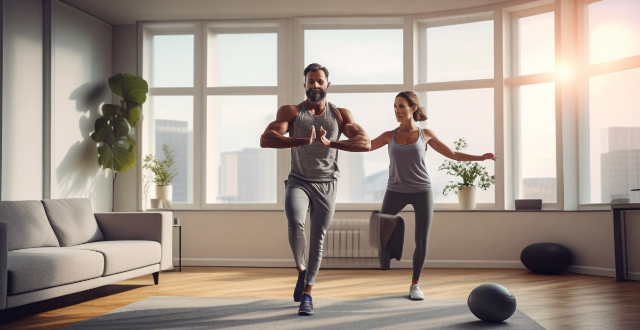
Are there any specific types of exercises that are more effective for stress relief ?
There are several types of exercises that have been shown to be particularly effective for reducing stress and promoting relaxation, including aerobic exercise, yoga, tai chi, resistance training, and meditation. These activities can help to release endorphins, improve cardiovascular health, increase flexibility and strength, provide a sense of accomplishment, and quiet the mind, all of which can contribute to lower stress levels and improved mental well-being.

Can sport-specific meditation or mindfulness practices improve performance and mental clarity ?
Sport-specific meditation and mindfulness practices can improve performance and mental clarity for athletes. These techniques offer benefits such as improved focus, reduced stress and anxiety, and enhanced recovery. Incorporating these practices into training regimens can help athletes achieve better results.

Are there any particular exercises or stretches that promote better sleep ?
**Exercises and Stretches for Better Sleep** Sleep is crucial for overall health, and poor sleep can lead to various issues. Specific exercises and stretches can improve sleep quality. These include yoga poses like Child's Pose and Legs Up the Wall, meditation techniques such as Body Scan and Guided Meditation, gentle aerobic exercises like walking and swimming, stretching exercises including neck stretches and shoulder shrugs, and deep breathing exercises like the 4-7-8 technique and diaphragmatic breathing. Incorporating these into your routine can significantly improve your sleep quality.

Can excessive exercise lead to sleep disorders ?
Overtraining can cause sleep disorders by disrupting normal sleep patterns and causing physical stress and fatigue. Relaxation techniques such as meditation, yoga, or deep breathing exercises can help calm your mind and body before bed. Adjusting your exercise routine and creating a consistent sleep schedule can also improve sleep quality. If you continue to experience sleep disturbances, consult with a healthcare professional for further evaluation and treatment.

Does exercise have different effects on cognitive function at different ages ?
This article explores the relationship between exercise and cognitive function across various age groups. It highlights the benefits of exercise for children's cognitive development, adults' reduced risk of cognitive decline, and older adults' slowed cognitive decline. Examples of suitable exercises for each age group are provided, including playing sports for children, aerobic activities for adults, and walking or cycling for older adults. The article concludes that incorporating physical activity into daily routines at any age is crucial for maintaining cognitive health and overall well-being.

Is it possible to lose weight without doing any exercise ?
Losing weight without exercise is a topic of interest for many individuals who want to shed pounds but may not have the time, ability, or desire to engage in physical activities. While exercise has numerous health benefits and can significantly aid in weight loss, it's not the only factor that influences your body weight. Here are several ways you might lose weight without traditional forms of exercise: - Dietary Changes: Eating a calorie-deficient diet, focusing on whole foods, practicing portion control, using smaller plates, limiting processed foods and sugars, and reading labels for serving sizes and calorie counts. - Lifestyle Changes: Increasing Non-Exercise Activity Thermogenesis (NEAT) by being more active in daily life, improving sleep habits by establishing a sleep routine, and managing stress levels through meditation, deep breathing exercises, and yoga. - Behavioral Changes: Keeping a food diary, setting realistic goals with small, sustainable changes, seeking professional advice from a registered dietitian or nutritionist, and creating personalized plans based on unique health profiles and preferences.

What are the latest research findings in exercise physiology that can benefit amateur athletes ?
This text discusses the latest research findings in exercise physiology for amateur athletes, including the benefits of High-Intensity Interval Training (HIIT), recovery techniques, nutrition and hydration, and mental health strategies. Incorporating these findings can help amateur athletes improve their performance, prevent injuries, and achieve their fitness goals.

How does exercise influence mood and emotional stability ?
Exercise has a positive impact on mood and emotional stability by releasing endorphins, reducing stress hormones, enhancing resilience, promoting mindfulness, and providing a sense of achievement. Incorporating regular exercise into your lifestyle can lead to better mental health and overall well-being.

Can exercise help with stress management ?
**Topic:** Can Exercise Help with Stress Management? **Summary:** * **Introduction:** The inevitability of stress and its potential impact on health highlight the importance of effective stress management. Exercise is often touted as a beneficial method for reducing stress. * **Relationship Between Exercise and Stress:** * **Physical Effects:** Exercise triggers endorphins, reduces cortisol levels, and improves sleep quality—all of which contribute to stress reduction. * **Mental Effects:** Enhanced cognitive function, increased self-esteem, and mindfulness techniques associated with exercise can aid in stress management. * **Benefits of Exercise for Stress Management:** * **Physical Benefits:** Improved cardiovascular health, weight management, and pain relief can reduce stress caused by related health issues. * **Mental Benefits:** Exercise can alleviate symptoms of anxiety and depression, improve mood, and increase resilience to stress. * **Practical Tips:** * **Setting Goals:** Start small and choose enjoyable activities to make exercise a sustainable habit. * **Consistency:** Scheduling workouts, finding an accountability partner, and tracking progress can help maintain a regular exercise routine. * **Conclusion:** Exercise is a powerful tool for managing stress, offering both physical and mental benefits. Incorporating it into one's lifestyle can significantly enhance overall well-being and resilience to life's challenges.

How much exercise is needed to improve sleep ?
The text discusses the importance of regular physical activity in improving sleep quality. It highlights how exercise can lead to better sleep patterns, faster sleep onset, deeper sleep, and improved sleep efficiency. The amount of exercise needed varies depending on individual factors, but general guidelines suggest at least 150 minutes of moderate-intensity aerobic exercise per week. Even small amounts of physical activity can have positive effects on sleep. Various types of exercise, including aerobic exercises, resistance training, yoga, and Pilates, can contribute to improved sleep quality. Timing your exercise sessions appropriately is crucial for maximizing their benefits for sleep improvement. Consistency is key when it comes to reaping the benefits of exercise on sleep quality.

How does meditation help in reducing stress levels ?
Meditation is a practice that helps in reducing stress levels by calming the mind and body, improving concentration, promoting emotional health, increasing self-awareness, and enhancing mindfulness. It is a powerful tool for managing stress effectively and leading a happier, healthier life.

How much exercise do I need to do to manage my stress effectively ?
Managing stress through exercise is a crucial aspect of maintaining overall health and well-being. The ideal amount of exercise for stress management, as per the American Heart Association, is 150 minutes of moderate-intensity aerobic activity or 75 minutes of vigorous aerobic activity weekly, along with muscle-strengthening activities involving all major muscle groups at least twice a week. Different types of exercises such as aerobic exercises, strength training, flexibility exercises, and mind-body exercises can contribute to stress relief. When creating an exercise routine, it's important to start slow, choose enjoyable activities, mix up different types of exercises, set realistic goals, and make it a habit. Consistency is key in managing stress through exercise.

Are there specific exercises that help improve mental health ?
Exercises like yoga, meditation, aerobic exercise, resistance training, MBSR, and Tai Chi can help improve mental health by reducing stress, anxiety, and depression symptoms while promoting relaxation, self-awareness, and social interaction.

How does meditation or mindfulness practice contribute to creative development ?
Meditation and mindfulness practices can significantly foster creativity by enhancing attention, increasing awareness, reducing mental clutter, promoting emotional regulation, stimulating neurological growth, fostering a growth mindset, improving sleep quality, encouraging self-reflection, providing incubation time, and enhancing collaboration. Incorporating these practices into daily routines can help individuals unlock their full creative potential, leading to personal growth and innovation in various fields.
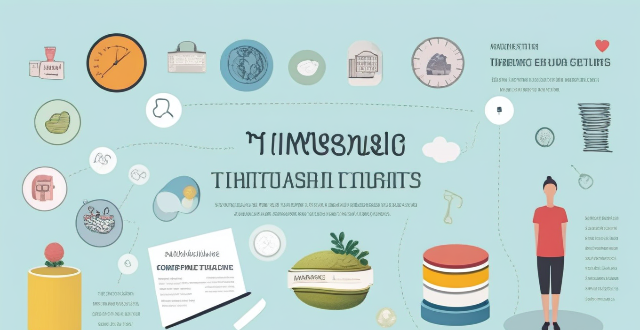
How do celebrities handle stress and pressure ?
Celebrities manage stress through meditation, exerciseCelebrities manage stress through meditation, exercise, social support, time management exercise, therapy, creative outlets, social support, time management, and healthy lifestyle choices.

What are the best exercises for improving mental health ?
Engaging in regular physical activities is crucial for maintaining good mental health. Some of the best exercises for improving mental health include cardiovascular exercises like running, cycling, and swimming; strength training exercises like weightlifting, resistance bands, and bodyweight exercises; and yoga and meditation practices like Hatha yoga, mindfulness meditation, and Tai Chi. By incorporating these exercises into your routine, you can reduce stress and anxiety levels while also improving overall well-being.

How can I incorporate mindfulness into my daily routine to improve my personal health ?
Incorporating mindfulness into your daily routine can improve personal health by increasing self-awareness and reducing stress. Techniques include starting the day with meditation and gratitude, practicing mindful eating, single-tasking, taking nature breaks, walking meditation, breath awareness, mindful listening, tech-free time, body scans, positive affirmations, mindful movement, evening reflection, wind-down routines, bedtime meditation, sleep journaling, comfortable sleep environments, digital detox before bed, guided sleep meditations, and ending the day with a gratitude prayer.
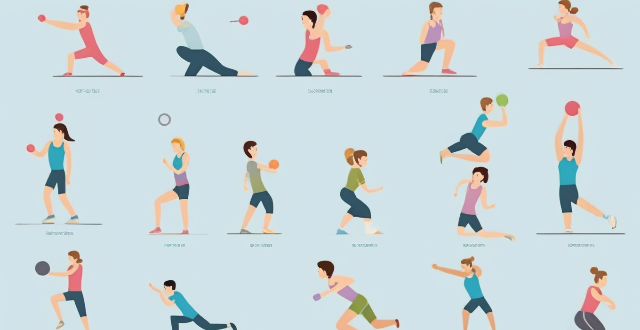
Are there any particular sports or exercises that have been studied for their impact on immunity ?
This article discusses the impact of various sports and exercises on immunity, including aerobic exercise, resistance training, high-intensity interval training (HIIT), and yoga/meditation. It highlights the positive effects of these activities on immune function when performed regularly and appropriately, such as increased blood flow, enhanced immune cell production, improved cardiovascular health, and reduced inflammation. However, it also emphasizes the potential negative effects of excessive exercise or overtraining on immunity, urging individuals to find a balance between physical activity and rest.

What are some natural remedies for stress relief ?
Stress is a common problem that affects people of all ages and backgrounds. While there are many ways to manage stress, some people prefer to use natural remedies instead of relying on medication or other treatments. Here are some natural remedies for stress relief: 1. Exercise: Regular exercise can help reduce stress by releasing endorphins, which are natural mood boosters. Even a short walk or jog can make a big difference in your overall well-being. 2. Meditation: Meditation is a popular way to reduce stress and improve mental clarity. It involves focusing on your breathing and clearing your mind of distractions. There are many different types of meditation, so you can find one that works best for you. 3. Yoga: Yoga combines physical exercise with mindfulness and relaxation techniques to help reduce stress and improve overall health. Many yoga classes also include music and aromatherapy to further enhance the experience. 4. Massage therapy: Massage therapy can help relieve muscle tension and promote relaxation by stimulating the release of endorphins and reducing cortisol levels in the body. 5. Aromatherapy: Essential oils such as lavender, peppermint, and chamomile have been shown to have calming effects on the brain and body, helping to reduce stress and anxiety. 6. Herbal teas: Herbal teas like chamomile, ginger, and lemon balm contain compounds that have been shown to have anti-inflammatory and calming effects on the body. 7. Deep breathing exercises: Deep breathing exercises involve taking slow, deep breaths through your nose while focusing on your breath. This helps to calm your mind and relax your body. 8. Spending time in nature: Being surrounded by nature has been shown to have a positive impact on mental health and reduce stress levels. Taking a walk in the park or going for a hike can be a great way to de-stress after a long day at work or school.
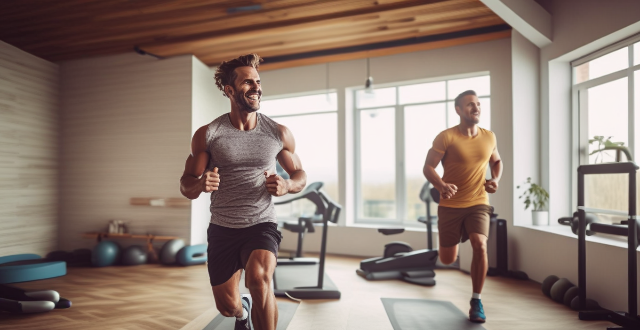
Are there specific workout routines designed for emotional stability ?
Emotional stability is an important aspect of overall well-being, and exercise can play a significant role in achieving it. Cardiovascular exercises like running, cycling, swimming, and dancing increase heart rate and blood flow, reducing stress and anxiety levels while releasing endorphins that improve mood. Strength training such as weightlifting or resistance band exercises build muscle strength and endurance, improving self-esteem and confidence while reducing symptoms of anxiety and depression by promoting the growth of new brain cells and increasing neurotransmitter levels. Yoga and meditation practices focus on mindfulness, breathing techniques, and relaxation, reducing stress levels and improving cognitive function, memory, and attention span. Incorporating these activities into your fitness routine can have a positive impact on your emotional stability and overall well-being.

What are the best types of exercises for reducing stress and anxiety ?
This article discusses the best types of exercises for reducing stress and anxiety, including cardiovascular exercises like running and cycling, strength training exercises like weightlifting and resistance band training, as well as yoga and meditation. It provides benefits and tips on how to get started for each type of exercise. Incorporating these exercises into your daily routine can help to reduce stress and anxiety, leading to improved overall well-being.

What are some effective tips for falling asleep faster ?
Effective Tips for Falling Asleep Faster Falling asleep can sometimes be a challenge, especially when you're tired but your mind is racing. Here are some effective tips to help you fall asleep faster: - Stick to a Sleep Schedule: Try to go to bed and wake up at the same time every day, even on weekends. This helps regulate your body's internal clock. - Create a Bedtime Routine: Wind down before bed by engaging in relaxing activities such as reading or taking a warm bath. Limit screen time to avoid blue light interference with sleep. - Make Your Bedroom Conducive to Sleep: Ensure your bedroom is dark enough, keep it cool, and invest in comfortable mattress and pillows. - Limit Caffeine and Alcohol Intake: Avoid caffeine late in the day and limit alcohol consumption to avoid disrupting your sleep cycle. - Practice Relaxation Techniques: Deep breathing exercises, meditation, and progressive muscle relaxation can calm your mind and body. - Avoid Naps During the Day: If you struggle with falling asleep at night, avoid napping during the day or limit naps to 20-30 minutes early in the afternoon. - Get Regular Exercise: Exercise regularly but avoid intense workouts close to bedtime. Choose morning or early afternoon exercise sessions to improve sleep quality without disrupting your sleep schedule.
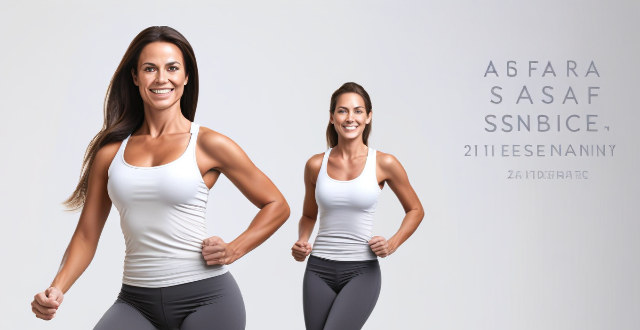
Is it safe to exercise during pregnancy and what precautions should be taken ?
Is it safe to exercise during pregnancy? Yes, as long as you follow certain precautions and guidelines, including consulting your healthcare provider, choosing appropriate exercises, listening to your body, staying hydrated, wearing comfortable clothing, using proper technique, avoiding lying flat on your back, not pushing yourself too hard, cooling down properly, and being mindful of environmental factors. Exercise can have numerous benefits for pregnant women, such as reducing the risk of gestational diabetes, improving mood, increasing energy levels, and helping with recovery after birth.

How do celebrities balance their busy schedules with regular exercise sessions ?
Celebrities balance their busy schedules with regular exercise sessions by prioritizing exercise, planning ahead, hiring personal trainers, incorporating exercise into daily routines, and making time for recovery. By following these tips, anyone can find ways to fit exercise into their busy lives and maintain good health and fitness.